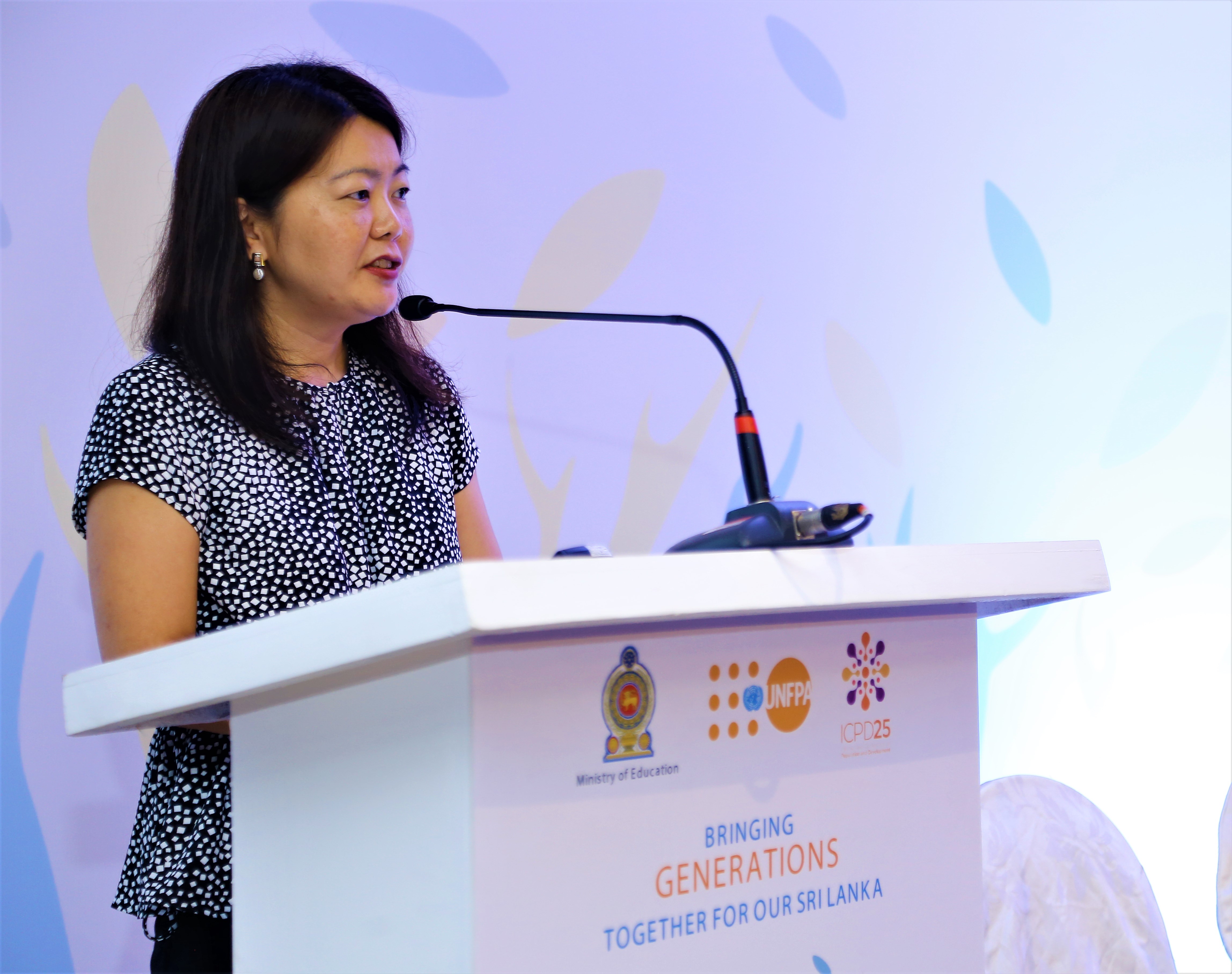The United Nations Population Fund (UNFPA) in Sri Lanka hosts a panel discussion with international and national experts at the 1st South East Asia Regional Meeting of the International Epidemiological Association on ‘Ensuring Women’s Sexual and Reproductive Health and Rights for Sustainable Development’
Colombo, Sri Lanka (21 Sept 2019): While almost every mother in Sri Lanka delivers her child in a health facility, significant controversy continues to revolve around issues relating to sexual and reproductive health and rights of women and young people. Sexual and reproductive health and rights are more than anatomy. It is about identity, bodily integrity, and a person’s ability to choose if, when, and how many children to have. It has a major implication to national development processes and strongly links with a country’s capacity to advance on sustainable development. To uphold these rights, all women and girls need access to accurate information and comprehensive health services including contraception.
The United Nations Population Fund (UNFPA) brought together international and national experts at a panel discussion today, as part of the 1st South East Asia Regional Group Meeting of the International Epidemiological Association, held in conjunction with the 24th Annual Academic Session of the College of Community Physicians of Sri Lanka (CCPSL). The panel discussion titled ‘Beyond ICPD – Ensuring Women’s Health and Rights for Sustainable Development’, focused on the achievements and gaps that remain for Sri Lanka, since the International Conference on Population and Development (ICPD). In 1994, 179 governments – including Sri Lanka – met in Cairo at the ICPD and collectively recognized that reproductive health and women’s empowerment are intertwined and that both are necessary for sustainable development.

Delivering the welcome remarks, UNFPA Representative in Sri Lanka, Ms. Ritsu Nacken, said, “This month marks exactly 25 years since the ICPD. While a lot of progress has been made in women’s health around the world and in Sri Lanka, many challenges remain. These must be overcome to ensure all women and young people have access to sexual and reproductive health services and information so that they can lead healthy and dignified lives and fulfill their potential. This is a prerequisite for achieving the 2030 Agenda for Sustainable Development.”
While 360,000 women get pregnant each year in Sri Lanka, one in three of these pregnancies are unplanned. When a pregnancy is unplanned or unintended, it can pose an added burden to the woman and her family at large. Yet, 35% of currently married women do not use contraception in Sri Lanka.
Sharing experiences from the region, Ms. Sivanthani Thanenthiran, Executive Director of the Asian-Pacific Resource and Research Centre for Women (ARROW) in Malaysia, said, “It is important that myths and misconceptions relating to contraception are debunked and that the need to plan pregnancies is taken seriously. It is of utmost importance that a mother is ready for her pregnancy; emotionally and physically, as well as socially and economically, in order to enjoy motherhood and to be able to provide the best for her child”.
Local experts in the panel included Prof. Hemantha Senanayake, Chair Professor of Obstetrics & Gynecology, University of Colombo; Prof. Anuruddhi Edirisinghe, Cadre Chair Professor of Forensic Medicine, University of Kelaniya; and Ms. Tina Solomons, Senior Lecturer, Clinical Psychologist, Faculty of Medicine, General Sir John Kotelawela Defence University. The panel was co-moderated by Ms. Ritsu Nacken, UNFPA Representative in Sri Lanka and Dr. Sujata Samarakoon, Public Health Specialist and M&E Specialist, Price Waterhouse Coopers, Local Funding Agency of Global Fund for AIDS, Tuberculosis and Malaria, Sri Lanka.
The discussion provided a platform for open dialogue between policy makers, health professionals, academics, civil society, media, and other stakeholders, as it explored Sri Lanka’s progress and way forward in relation to the 2030 Agenda on Sustainable Development, the ICPD, and Universal Health Coverage.

